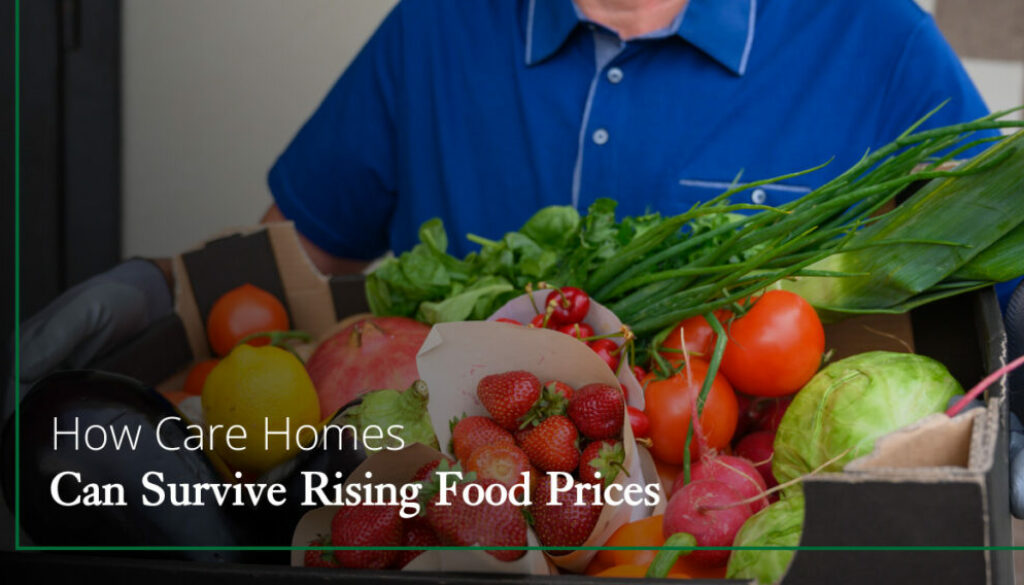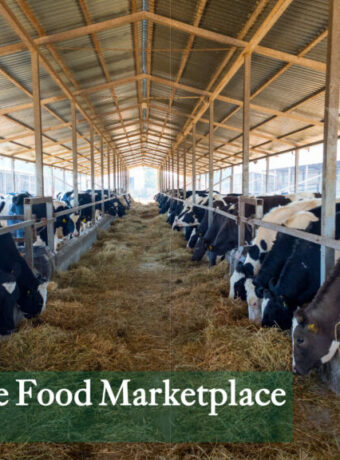How Care Homes Can Survive Rising Food Prices
It’s getting difficult; So difficult that even Aldi, the UK’s cheapest supermarket (2021) can’t keep food prices down!
The CPI (Consumer Price Index), which is the official mechanism used to measure inflation in the UK, showed the cost of food and drink had gone up 3.9% year-on-year since January 2020, and 4.2% at the beginning of this year. This is the highest food price inflation since September 2013[1].
This alongside the general cost of living crisis, of which businesses and our own Third Sector are not immune to, is making financial sustainability a real stress for many people.
However, there is a lot that can be done to navigate this crisis and ensure your care home is very financially stable. The tactics we’re about to discuss form a large part of how we help the Third Sector and we want to spread the word to help more of you.
What is Affecting Food Prices?
Well this is a complicated question, with a complicated answer that may be argued over. However, in the past two years, we have endured a once in a generation pandemic, Brexit and now a war on European soil. The later in which we are still assessing the total current and short term future impact.
Fraser McKevitt, the head of retail and consumer insight at Kantar, said: “Apart from the start of the pandemic, when grocers cut promotional deals to maintain availability, this is the fastest rate of inflation we have recorded since September 2013.”[2]
Supply chain issues have also been a major contributor caused by everything in the previous list. But possibly also due to rising production costs for farmers etc., with increased costs of machinery and feed for instance.
So What Can Be Done?
Well the best way to answer this is to summarise what we do for our clients…
Menu Management & Waste
The nutritional care of the customers and residents is a high priority for us. We adapt menus to everyone’s requirements for texture, allergens, fortification, ethnic and cultural diets whilst meeting the nutritional guidelines and taste. Our chefs are also trained to adapt the dishes to meet the dietary needs of the residents whilst still ensuring they have an enjoyable and nutritious meal.
However, with our renowned Chef Manual, chefs are also able to adapt recipes quickly and effectively using guided alternative ingredients if there was ever a shortage. These changes maintain the nutritional benefits and taste of every recipe.
Furthermore, this careful menu planning ensures waste is limited, as ingredients can be used across multiple recipes and correct quantities are ordered in advance.
Healthy food doesn’t need to be expensive; often easy processed options is where higher costs are incurred.
Supply Chain Management
Aside from having direct access to suppliers, where we can negotiate the very best prices, here are some practical tips:
- Assess your order volumes for your top 50 products over the past 3 months and ensure orders are logged early. This will mitigate against shortages.
- Asses required products and menus that may include ‘short-life’ products, and plan suitable alternatives in advance.
- For products sourced from outside of the UK and the EU, ensure you are fully aware of any duty impact based on existing tariffs to allow for prudent financial planning.
Working alongside an external catering management company such as Cedar Revive can be advantageous, as we have long built relationships you can take advantage of.
An example of these benefits at this moment is the pro-active response to protests at ports as a result of ferry staff redundancies. Through our primary supplier we have been able to re-route most of our loads which would otherwise have been disrupted by suspended crossings.
Long Term Savings from Good Nutrition
When we achieve both healthier and happier residents, more efficient and manageable menus, and a more cost effective service, it allows our clients to focus on higher quality of care.
It may seem off at first sight, but very simply – higher levels of care and nutrition = a more cost efficient organisation, as your residents become more self-sufficient. Poor nutrition that negatively affects health, cognitive ability and comfort simply adds to the resident’s requirement for more intense care from the care provider. It takes away from their independence.
It is always our goal that our service cost is at the very least cancelled out by the savings and additional income made by our clients.
Many of the benefits of the Cedar Revive services can be seen and felt immediately, as the moral and mental state of staff and residents alike dramatically improves. The happiness seen in the residents we serve comes from an improved service, which in turn makes our client’s care facilities a more attractive prospect.
The statistical improvements to our client’s bottom lines are also very clear to see, with savings such as:
- An average of 35% reduction in weekly food & sundries cost, as a direct result of our procurement system and menu planning.
- An average of 20% savings on staff costs, as a direct result of the processes implemented and improved welfare of residents.
If you would like to learn more about our services then we invite you to read through our latest brochure here: www.revive-catering.co.uk/brochure
However, we’d really love to chat to learn more about the issues you are trying to overcome. So contact us today to arrange a call.




